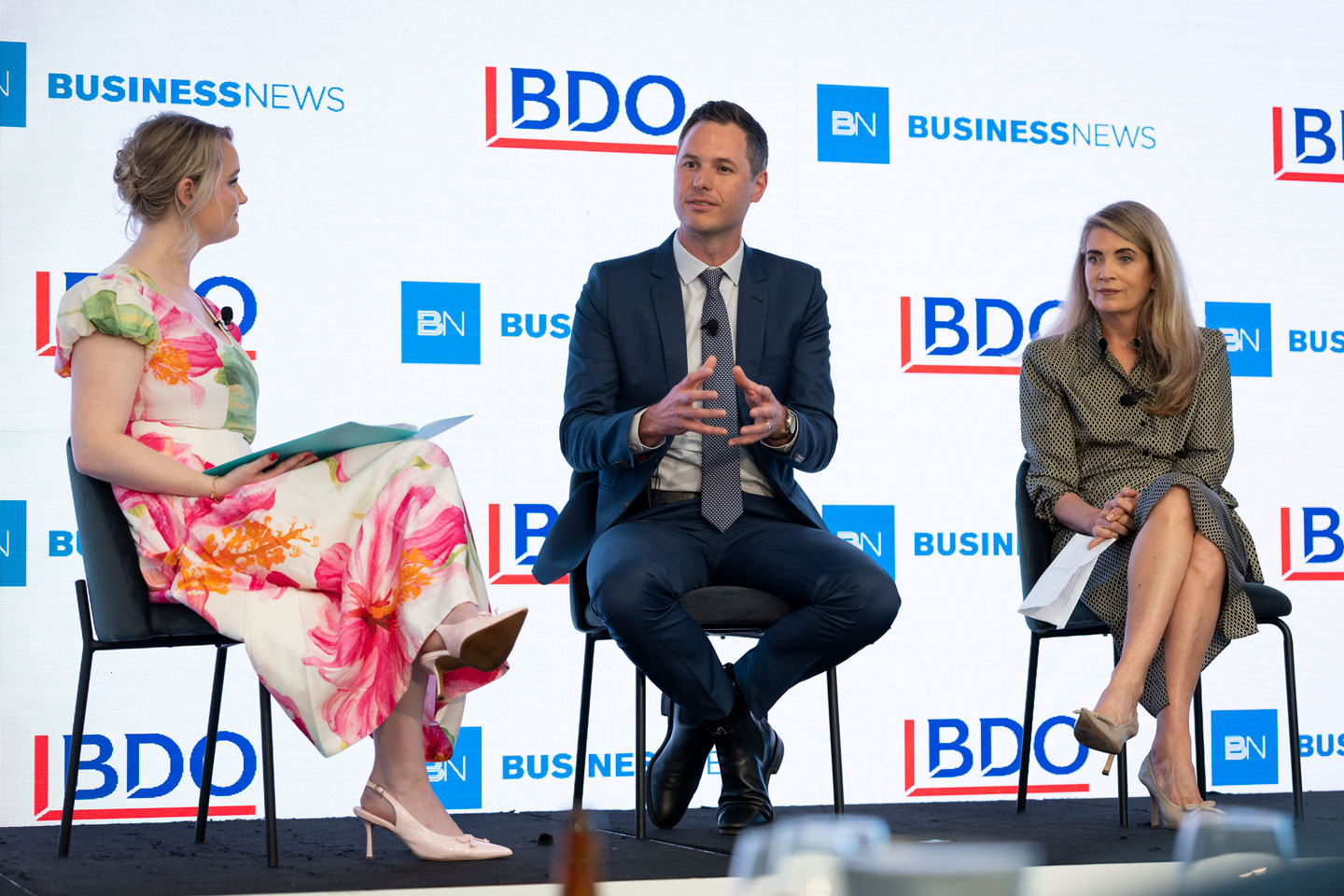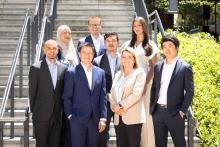

As Western Australia enters a new phase of growth, its ability to remain globally competitive will depend on sustained productivity gains, workforce development, and the capacity to adapt to global pressures.
At BDO’s Navigating the Future lunch, held at Fraser’s Kings Park in September in conjunction with Business News, industry leaders and experts gathered to take stock of the state’s economic outlook.
The panel discussed how innovation, planning and technology can underpin long-term prosperity in WA’s economy, and emphasised that WA’s growth relies not only on the state’s natural resources but on its ability to integrate emerging technologies and optimise operations.
BDO’s recently released Business Outlook 2025 report highlighted that WA’s economy remains strong, driven by resource exports, population growth, and a push for diversification and digital transformation.
Former regional managing director of defence and intelligence for Microsoft, Andy Wood, said the state’s economy is robust and outpacing the national average. “It’s been underpinned by booming resource exports, population growth and prudent fiscal management,” he said.
“WA’s government is also leveraging new tech and generative AI to diversify the economy and boost productivity across sectors.”
Driving productivity
While growth remains strong, challenges persist – particularly around labour shortages, skills gaps, and capacity constraints, limiting output in sectors such as construction and manufacturing.
The report notes that while productivity remains high, it is slowing in WA. Technology, regulatory reform, and skills development – including better utilisation of the migrant workforce – are key to improvement.
Sally Langer, non-executive director of Northern Star Resources, observed: “Labour shortages are a key issue everywhere, and states are competing for international migrants. There are opportunities to do better with the migrants we have, recognising their skills more quickly.”
Julie Drago, CEO of Realside Ovest, said that regulatory reform is needed to speed up project delivery. “It’s a real problem that it takes a long time to build things. That’s not just an issue in WA, it’s a broader productivity challenge across Australia,” she said.
“The pressure on delivery timelines is real,” Ms Drago added. “Businesses are navigating a tight construction market, limited builder availability, and delays in infrastructure upgrades, all of which are impacting confidence and planning.”
While technology such as AI and advanced data analytics are increasingly being adopted to keep ahead of the curve and optimise operations, the panel stressed that efficiency is about rethinking operations and removing bottlenecks.
Workforce and skills development
The panel highlighted the need for a skilled, future-ready workforce to sustain WA’s growth. Anders Magnusson, BDO Australia’s chief economist, stressed the importance of strategic investment in training and migration programs.
“We have a real opportunity to reshape how we meet workforce demand in WA. Sectors like aged care, construction, and exports are growing fast, but we’re not yet training or attracting enough people to keep pace,” he said.
“Technology can help in some areas, but in others, like care and housing, we need people. The good news is we can plan for this.
“Smarter migration programs, better matching of skills to jobs before arrival, and a renewed focus on productivity can help us close the gap and build a stronger, more resilient workforce.”
He said the productivity story hasn’t been great in Australia recently, but there are real opportunities to turn that around. “In WA, we’ve got aparticularly strong stock of capital, but we need to better leverage technology and skills to lift output.”
The panel emphasised the importance of up-skilling existing workers, especially as sectors adopt new technologies.
“Those who can combine operational knowledge with technology will drive productivity gains in the coming years,” Ms Langer said.
They agreed that companies investing in internal talent and creating multi-skilled or cross functional teams can boost productivity while reducing reliance on external recruitment.
“Higher productivity fuels economic growth, which in turn gives us more resources to invest in our communities and future,” Mr Magnusson said.
Adapting to global pressures
Global disruption – from rising energy costs to commodity price volatility – demands workforce agility. Keith Wilks, CEO of Southern Ports, who oversees the ports at Albany, Bunbury, and Esperance, explained how digital systems can help organisations manage logistics, adapt to demand changes and respond to new export markets.
“We’re seeing the impact of global disruption, but it’s not uniform across our customer base. The ups and downs highlight the importance of fit-for-purpose infrastructure in attracting and supporting a diverse customer base. It’s what’s holding us in good stead right now,” he explained.
Mr Wilks said in uncertain times like these it’s important to focus on the fundamentals of your business, without losing sight of your strategy.
“It’s about going back to basics: resilience, strong cash management, and productivity,” he said. “Keep delivering on your strategic goals and transformation initiatives, while protecting your core operations.”
BDO’s report underlined that resilience is not just about surviving shocks but thriving through them and embedding digital transformation alongside strong governance and ethics.
Opportunities in technology
The panel discussed emerging tools such as predictive maintenance and AI-driven workforce scheduling, which allow businesses to simulate scenarios, forecast capacity needs, and manage risks proactively.
According to Mr Magnusson, embracing technology is central to boosting productivity.
“AI and automation can help us do more with less, especially in sectors like mining and construction, by improving safety, efficiency, and decision-making. If we get this right, we can drive a virtuous cycle,” he said.
Mr Wood added: “WA’s commitment to digital transformation and AI is helping to address skill shortages, boost productivity, and create new opportunities for innovation across sectors.
“By layering advanced capabilities like generative AI on top of our resource base, we’re adding value, creating new jobs, and positioning WA as a global leader in knowledge and technology.”
WA’s abundant resources, a growing skilled population, and increasing digital capability remain strong fundamentals for the state.
BDO’s Business Outlook 2025 report makes it clear that productivity gains, innovation, and workforce agility will be the hallmarks of future competitiveness.
By embedding technology, streamlining processes, and investing in workforce development, WA can leverage its natural advantages while remaining competitive in a globalised economy.

















